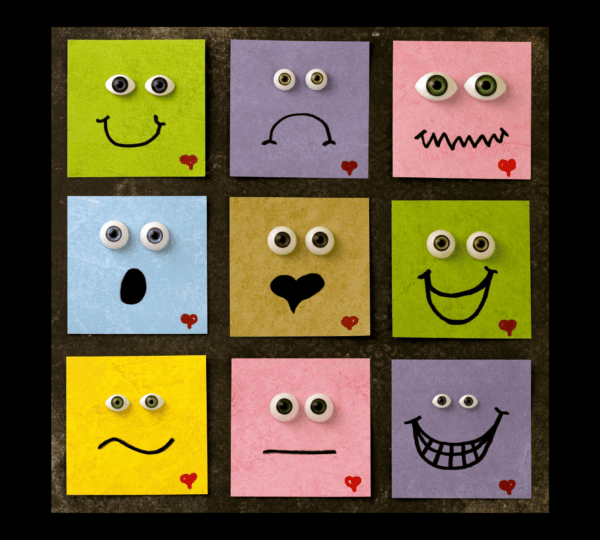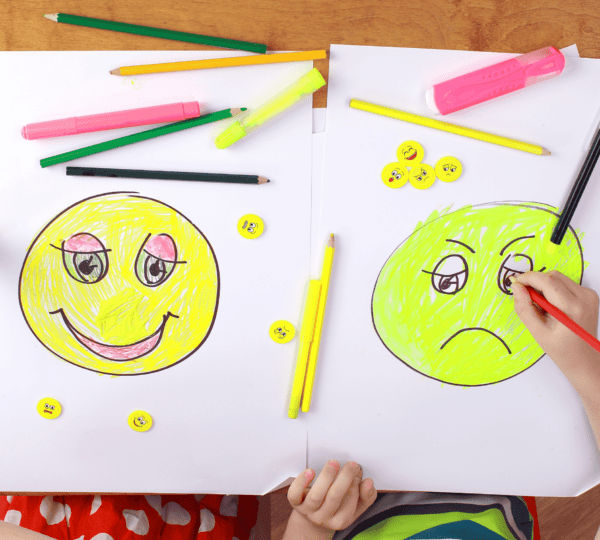
How to Develop Emotional Intelligence in Children
Handling children’s emotions can often feel like navigating a storm—you never know when it might hit or how intense it will be. I saw this firsthand one afternoon at the park. A little girl sat on a bench, clutching a broken toy, her tears falling steadily. Her father, rather than dismissing her distress, knelt down and said, “It’s okay to feel upset. This toy means a lot to you, doesn’t it?”
His calm approach was remarkable. Instead of trying to silence her tears, he acknowledged her feelings and helped her process them. By the time they left, she was smiling, her father promising they’d fix the toy together.
Moments like this highlight the importance of teaching emotional intelligence (EI) to children. Kids don’t come into the world knowing how to manage their emotions—it’s something they learn through patience, guidance, and example.
As adults, it’s our job to guide them, helping them develop emotional intelligence (EI) so they can navigate relationships, school, and later, the workplace. But how exactly do we do that? Let’s explore the strategies that research, experts, and popular blogs recommend for cultivating emotional intelligence in children.
Why Emotional Intelligence Matters in Children
Emotional intelligence has far-reaching benefits for children. According to a 2019 study published in Frontiers in Psychology, children with higher emotional intelligence tend to perform better academically, have healthier relationships, and demonstrate greater resilience in the face of challenges. Dr. John Gottman, a renowned psychologist and researcher, emphasizes that helping children understand and regulate their emotions is foundational to their long-term mental health and social success.
The earlier children begin developing EI, the better equipped they will be to navigate school dynamics, friendships, and, eventually, workplace relationships. But fostering emotional intelligence requires intentional effort. Here’s how to get started.
Emotional Intelligence in the Classroom
Emotional Intelligence (EQ) is not just a buzzword; it’s a critical skill that can significantly impact a child’s academic and social success. When integrated into the classroom, EQ can create a more positive, inclusive, and effective learning environment.
The Benefits of EQ in the Classroom
- Improved Academic Performance: Students with high EQ are more motivated, focused, and better able to manage stress.
- Enhanced Social Skills: EQ helps students develop strong relationships with peers and teachers.
- Increased Self-Awareness: Students with high EQ are better able to understand their own emotions and how they impact their behavior.
- Better Problem-Solving Skills: EQ enables students to think critically, consider different perspectives, and find creative solutions.
How to Foster EQ in the Classroom
- Social-Emotional Learning (SEL) Curricula: Implement SEL programs that explicitly teach emotional skills like self-awareness, self-management, social awareness, relationship skills, and responsible decision-making.
- Mindfulness Practices: Incorporate mindfulness activities, such as meditation and deep breathing, into the daily routine.
- Cooperative Learning: Encourage group work and collaborative projects to promote teamwork and empathy.
- Positive Classroom Culture: Create a supportive and inclusive classroom environment where students feel safe to express their emotions.
- Teacher Training: Provide teachers with training on EQ and SEL strategies to equip them to effectively support their students.
Specific Strategies for Teachers
- Model Emotional Intelligence: Teachers should demonstrate emotional intelligence by managing their own emotions effectively and responding to students’ emotions with empathy.
- Use Open-Ended Questions: Encourage students to think critically and express their thoughts and feelings.
- Provide Opportunities for Self-Reflection: Use journaling, art, or other creative activities to help students explore their emotions.
- Teach Conflict Resolution Skills: Help students learn how to resolve conflicts peacefully and respectfully.
- Celebrate Diversity and Inclusion: Create a classroom culture that values and respects all students, regardless of their background or abilities.
The Impact of Parenting Styles on Emotional Intelligence
A child’s emotional development is significantly influenced by their parents’ parenting style. By understanding the different parenting styles and their impact on EQ, parents can make conscious choices to foster their child’s emotional growth.
Parenting Styles and Their Impact on EQ
- Authoritative Parenting: This style, characterized by high responsiveness and high demandingness, is often associated with the best outcomes for children’s emotional development. Authoritative parents set clear limits, communicate effectively, and provide warmth and support.
- Authoritarian Parenting: This style, characterized by high demandingness and low responsiveness, can lead to children who are anxious, fearful, and have difficulty expressing their emotions.
- Permissive Parenting: This style, characterized by low demandingness and high responsiveness, can result in children who lack self-discipline and have difficulty regulating their emotions.
- Uninvolved Parenting: This style, characterized by low demandingness and low responsiveness, can lead to children who have difficulty forming healthy attachments and have poor social skills.
Tips for Parents to Foster Emotional Intelligence
- Active Listening: Pay attention to your child’s thoughts and feelings, and validate their emotions.
- Emotional Labeling: Help your child identify and label their emotions.
- Empathy Building: Encourage your child to consider others’ perspectives.
- Limit Screen Time: Reduce exposure to excessive screen time to promote social interaction and emotional development.
- Practice Mindfulness Together: Engage in mindfulness activities as a family to teach relaxation and stress management techniques.
- Set Clear Limits and Expectations: Establish consistent rules and consequences to help children develop self-control.
- Positive Reinforcement: Reward positive behavior to boost self-esteem and motivation.
- Model Emotional Intelligence: Demonstrate healthy ways to manage emotions and resolve conflicts.
Emotional Intelligence and Special Needs Children
Children with special needs often face unique challenges in developing emotional intelligence. However, with the right support and strategies, they can thrive emotionally.
Challenges Faced by Special Needs Children
- Communication Difficulties: Children with communication impairments may struggle to express their emotions.
- Sensory Sensitivities: Sensory overload can lead to emotional dysregulation.
- Social Skills Deficits: Children with autism or social anxiety may have difficulty forming and maintaining relationships.
Strategies to Support Emotional Development in Special Needs Children
- Early Intervention: Early intervention can help identify and address emotional challenges early on.
- Individualized Education Plans (IEPs): Ensure that the IEP includes goals for social-emotional development.
- Sensory Integration Therapy: This therapy can help children with sensory processing issues regulate their emotions.
- Social Skills Training: Teach children with social deficits how to interact with others and build friendships.
- Visual Supports: Use visual aids, such as social stories or emotion charts, to help children understand and manage their emotions.
- Positive Behavior Interventions and Supports (PBIS): Implement PBIS strategies to teach positive behavior and reduce problem behavior.
- Family Support: Provide support and resources to families to help them understand and support their child’s emotional needs.
By understanding the importance of emotional intelligence and implementing effective strategies, we can empower all children to reach their full potential.
Conclusion:
Developing emotional intelligence in children isn’t just about improving their childhood; it’s about setting them up for a lifetime of success and well-being. By teaching self-awareness, empathy, self-regulation, social skills, intrinsic motivation, and resilience, we can help children grow into emotionally intelligent adults capable of thriving in any environment.
As parents, educators, and caregivers, the effort we put into this process is one of the most valuable gifts we can give.
References:
- Frontiers in Psychology. (2019). Emotional Intelligence in Children and Its Impact on Mental Health and Social Success. Retrieved from https://www.frontiersin.org/articles/10.3389/fpsyg.2019.01034/full
- Gottman, J. (1997). Raising an Emotionally Intelligent Child. New York: Simon & Schuster.
- Collaborative for Academic, Social, and Emotional Learning (CASEL). (2023). Social-Emotional Learning: A Comprehensive Approach. Retrieved from https://casel.org/what-is-sel/
- The Child Mind Institute. (2020). How to Foster Emotional Intelligence in Kids. Retrieved from https://childmind.org/article/how-to-raise-an-emotionally-intelligent-child/
- American Psychological Association (APA). (2017). The Impact of Parenting Styles on Emotional Development. Retrieved from https://www.apa.org/topics/parenting/emotional-development
- National Center for Learning Disabilities (NCLD). (2021). Supporting Emotional Intelligence in Special Needs Children. Retrieved from https://www.ncld.org/early-intervention-for-emotional-intelligence-in-special-needs-children/
- Mindful Schools. (2022). Mindfulness for Children: Practices and Benefits. Retrieved from https://www.mindfulschools.org/resources/mindfulness-practices-for-children/
- Autism Speaks. (2019). Supporting Social Skills and Emotional Intelligence in Children with Autism. Retrieved from https://www.autismspeaks.org/professional-advisor/supporting-social-skills-and-emotional-intelligence












